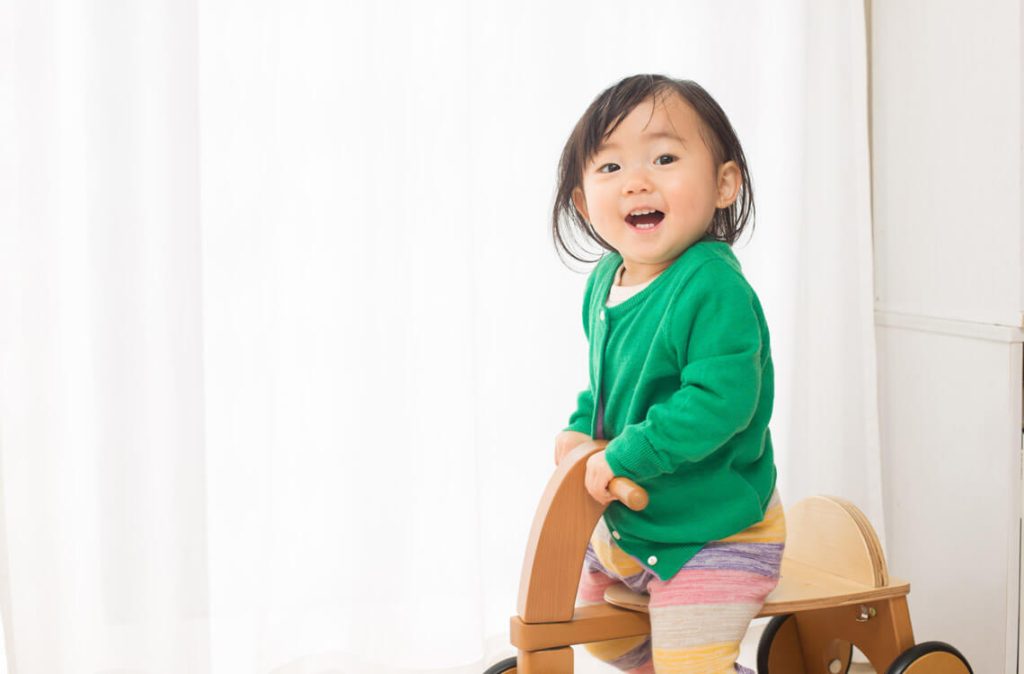At 16 months, your toddler is full of energy and curiosity. Their 16-month-old developmental milestones are full of new experiences and fast progress.
They’re no longer just learning to move or babble—they’re becoming little adventurers with big personalities.
This stage is marked by growing independence, stronger communication, and plenty of trial and error as they test new abilities.
Here’s what you can expect and how to support their growth.
Physical & Motor Milestones
Active Exploration
By now, most toddlers are walking with more confidence and may even break into short runs.
They might attempt to climb onto low furniture, scale small steps, or push objects around as part of play.
While tumbles are still common, their balance is improving quickly. Outdoor spaces and safe playgrounds are perfect for practising these new skills.
Developing Coordination
Fine motor skills are becoming more precise. Your toddler may try to build taller block towers, place objects into containers with accuracy, or feed themselves with a spoon.
Turning doorknobs, opening drawers, and poking at buttons show growing coordination and curiosity.
These skills not only encourage independence but also give a sense of accomplishment.
Language & Cognitive Development
Growing Vocabulary
At 16 months, many toddlers have a vocabulary of 10–15 words, though some may use more or fewer.
They may begin using simple two-word phrases like “want milk” or “go outside”.
Even if their words are limited, they understand much more than they can say. Gestures, pointing, and facial expressions remain important communication tools.
Early Thinking Skills
Cognitive development is in full swing. Your toddler might start problem-solving in simple ways, like figuring out how to stack blocks without them toppling or opening containers to get what’s inside.
They also enjoy repetition—whether it’s pressing the same button, hearing the same song, or reading the same book.
Repetition reinforces memory and learning.
Social & Emotional Development
Building Independence
At 16 months, toddlers often want to do things on their own. They may resist help with dressing, eating, or playing, and this can lead to frustration or tantrums.
While these behaviours can be challenging, they are a natural part of learning independence.
Encouraging small choices—such as which toy to play with or which cup to use—can give them a sense of control.
Stronger Connections
Emotional bonds are still very important. Your toddler may seek you for comfort after a fall, bring you toys to share, or copy your actions to feel connected.
Stranger anxiety often lessens at this stage, though some toddlers remain cautious with unfamiliar people.
Social games like peek-a-boo or clapping rhymes continue to be favourites.
Sensory & Perceptual Development
Exploring with the Senses
Toddlers at this age love to explore textures, sounds, and tastes. They may show strong preferences for certain foods or insist on touching everything in their path.
Sensory play, such as finger painting, sand play, or water play, provides a safe way to explore and learn.
Sharpening Awareness
Your toddler’s vision and hearing are becoming more finely tuned. They can spot familiar objects across the room and respond quickly to familiar sounds, like the opening of a biscuit packet.
They’re also starting to pay closer attention to how things work, such as watching you turn a key or stir a pot.
When to Talk to a Paediatrician
Every child develops differently, but speak with your paediatrician if your toddler:
- isn’t walking independently or showing interest in moving.
- doesn’t use gestures like pointing, waving, or shaking their head.
- rarely imitates sounds, actions, or words.
- doesn’t respond to their name or familiar voices.
- appears unusually stiff, floppy, or disengaged.
Your little one’s 16-month-old developmental milestones are not a race, but it’s important to notice if they’re behind on any of them.
Consult a doctor if they are having extra difficulty reaching these goalposts.
Expert Tips & Daily Activities
Movement and Play
Give your toddler opportunities for safe climbing, walking, and running.
Encourage them to push or pull toys, dance to music, or play ball games. These activities build strength, coordination, and confidence.
Boosting Language Skills
Talk to your toddler throughout the day. Label objects, describe what you’re doing, and pause to let them respond.
Reading short, interactive books and singing nursery rhymes are excellent ways to expand vocabulary.
Encouraging Independence
Allow your toddler to try feeding themselves, even if it’s messy.
Offer simple choices throughout the day, such as which book to read or which shoes to wear. These small acts of independence build confidence.
Fun Sensory Play
Provide safe materials for sensory exploration, such as soft fabrics, sand, or water. Rotate toys to keep their interest fresh, and let them explore with both hands and eyes. This kind of play stimulates their curiosity and creativity.
Looking Ahead
Sixteen months is a time of rapid change, with your toddler learning new skills almost daily.
They are becoming more active, expressive, and determined to do things their way. While this stage comes with challenges, like tantrums and endless mess, it also brings joy as your child’s personality shines through.
Celebrate the little victories of your toddler’s 16-month-old developmental milestones.
However, remember to support their independence and enjoy the wonder of this busy stage, parents!
Disclaimer: The information provided in this article is for informational purposes only and should not be considered as medical advice from Motherhood. For any health-related concerns, it is advisable to consult with a qualified healthcare professional or medical practitioner.
For more insightful stories and fun recipes, stay tuned to Motherhood Story!
